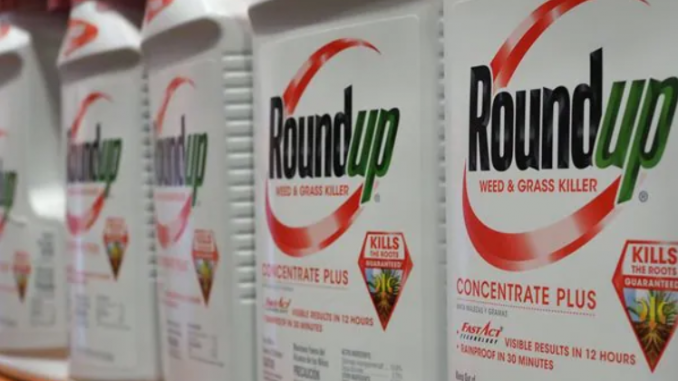
An overwhelming number of urine samples from adults and children in a new health study contained glyphosate, the active weedkilling chemical that has been linked to cancer, according to a report by a unit of the Centers for Disease Control and Prevention.
Out of 2,310 urine samples, 80%, or 1,885, were laced with traces of the chemical, which is the active ingredient found in herbicides worldwide, including Roundup, the focus of thousands of lawsuits, reported The Guardian.
About one-third of the participants in the study were children ages 6 to 18, the report said.
While researchers have been reporting the levels of glyphosate in human urine samples for years, the CDC’s studies started only recently.
The CDC’s research involves the amount of human exposure to the herbicide in the United States, as concerns grow about the impact of pesticides in water and food on the health of humans and the environment.
“People of all ages should be concerned, but I’m particularly concerned for children,” said Phil Landrigan, who worked for years at the CDC and the Environmental Protection Agency and now directs the Program for Global Public Health and the Common Good at Boston College.
“Children are more heavily exposed to pesticides than adults because pound-for-pound they drink more water, eat more food and breathe more air,” Landrigan said. “Also, children have many years of future life when they can develop diseases with long incubation periods, such as cancer. This is particularly a concern with the herbicide glyphosate.”
Lianne Sheppard, professor at the University of Washington’s department of environmental and occupational health sciences, said she expects it will be “disturbing to many people.”
“We know that a large fraction of the population has it in urine, [and] any people will be thinking about whether that includes them,” said Sheppard, who co-authored an analysis in 2019 showing that exposure to glyphosate increases the risk of non-Hodgkin’s lymphoma.
She also co-authored a paper that year examining 19 studies that documented glyphosate in urine.
According to research published in 2017 by University of California San Diego School of Medicine researchers, the amount of glyphosate in human urine has been rising steadily since the 1990s.
That was when Monsanto introduced genetically engineered crops designed to be sprayed directly with Roundup. Paul Mills, the study’s lead researcher, said at the time that there was an urgent need for more thorough research into the impact on human health from glyphosate in people’s food.
The weedkiller is used widely by U.S. farmers who spray it directly over genetically engineered crops like corn and soybeans, as well as on crops like wheat and corn to dry the crops before they’re harvested. It is also used before growing seasons, and residues have been documented in many popular foods made with crops that have been sprayed with glyphosate, even baby food.
Monsanto and the company that bought it in 2018, Bayer, have maintained that glyphosate and Roundup products are safe and disagree with the World Health Organization’s International Agency for Research on Cancer, which in 2015 named glyphosate as a probable human carcinogen.
The EPA, however, has said glyphosate is not likely carcinogenic. But last month, a federal appeals court vacated that determination and ordered “further consideration” to glyphosate tests.
The Supreme Court last month rejected Bayer’s appeal to shut down thousands of lawsuits claiming that its Roundup weedkiller causes cancer, leaving a $25 million judgment for a California man in place. He said he developed cancer through using Roundup to kill poison oak and weeds on his property in the San Francisco Bay area.
Via Newsmax
